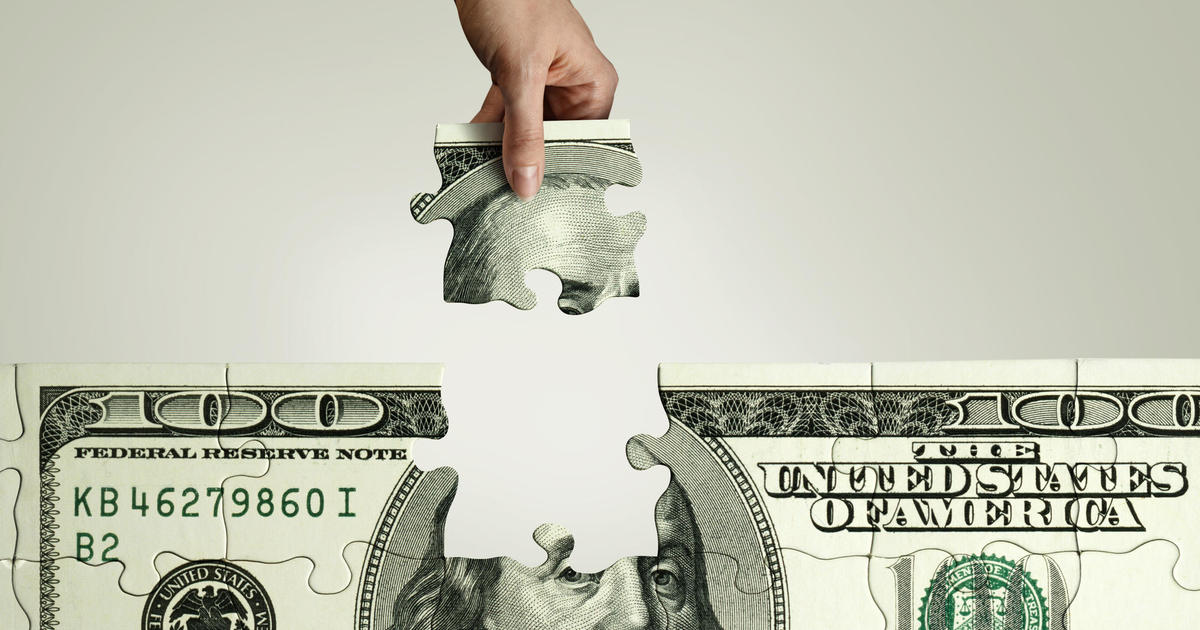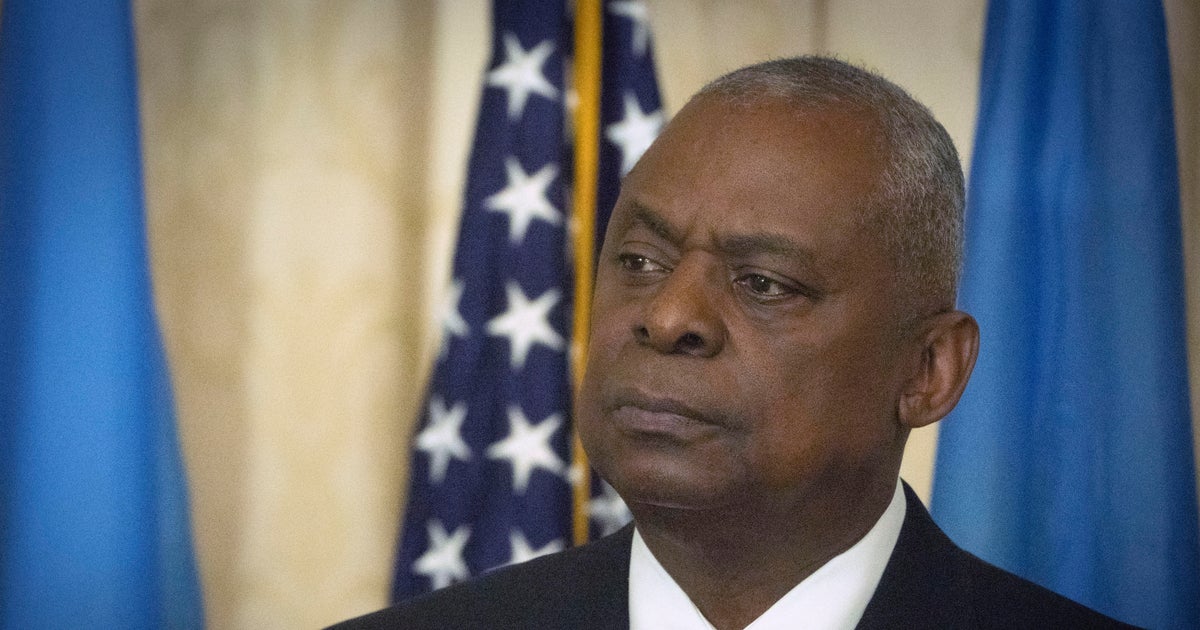CBS News
Why you should open a high-yield savings account this February

Getty Images
Saving money is an important part of a solid financial plan — and that’s true for nearly everyone. After all, there’s no way to tell when the next emergency might happen, and when it does, you may need to dip into your savings account to ease the financial burden it causes.
Then again, saving money is challenging. You have to be disciplined enough to set money aside, and money needs to earn a return that outpaces inflation or it loses buying power. One way to solve this problem is to put your money in a high-yield savings account.
And, many of today’s best high-yield savings accounts offer rates well over the current inflation rate — but there are even more reasons to consider opening one this month.
Compare leading high-yield savings account options today.
Why you should open a high-yield savings account this February
At an average rate of 0.47%, traditional savings accounts generally don’t keep up with inflation. So, if your emergency savings are currently held in a regular savings account, it may be time to make a change to a high-yield savings account. Here are three reasons you should open one this February:
Rates are impressive
The annual percentage yields (APYs) on leading high-yield savings accounts are currently between 4.35% and 5.25%. The current inflation rate in the U.S. is 3.4%, so you would earn an inflation-adjusted return of between 0.95% and 1.85% by depositing money into one of these accounts.
“The market for savings accounts is becoming increasingly competitive, propelled by the efficiency and cost savings associated with online banking,” says Gary Zimmerman, CEO and founder of MaxMyInterest. “Consequently, depositors stand to benefit from shopping for the best rates to maximize their savings.”
Take advantage of today’s impressive high-yield savings rates now.
Inflation is still high
The Federal Reserve’s federal funds rate is largely dependent on inflation. When inflation is above the Fed’s 2% target rate, the central bank usually increases interest rates to hamper consumer spending. When the economy is weak, though, the central bank often reduces interest rates in an attempt to spur consumer spending.
While inflation has slowed in recent months, it’s still higher than the Fed would like. And, in turn, the Fed has opted to pause rate hikes four consecutive times, keeping rates at a 22-year high. As such, many high-yield savings accounts are likely to continue offering impressive returns for now, making it a great time to consider opening one.
The rate environment could change
But while high-yield savings account rates are high on average right now, it’s important to note that the interest rate environment could change. And, because high-yield savings account rates are variable, those rates would likely fluctuate in tandem.
While the overall rate environment is currently high, though, that may change at some point in 2024. And if that happens, the rates being offered on high-yield savings accounts would decline, too.
By opening your account now, though, you’ll earn at today’s high rates and will continue to until the overall rate environment changes.
Other reasons to open a high-yield savings account
There are a few other reasons to consider opening a high-yield savings account as well, including:
- Safety: High-yield savings accounts typically come with FDIC or NCUA insurance on balances up to $250,000 per account, per depositor. So, your money is safe in this type of account up to the $250,000 limit.
- Accessibility: It’s important to have access to your emergency savings when you need it. And with a high-yield savings account, you can typically withdraw money up to six times per month without paying a fee.
- Fees: Many of the best high-yield savings account options are fee-free. So, if you choose one of these accounts, you won’t have to worry about unnecessary maintenance fees.
Don’t let your cash lose buying power. Open a high-yield savings account now.
The bottom line
A high-yield savings account is a great option to consider right now. The returns on these accounts often outpace inflation while offering you the safety and accessibility you need. Compare your options today to make your savings work harder for you.
CBS News
“Citizen” Bill Clinton – CBS News

Watch CBS News
Be the first to know
Get browser notifications for breaking news, live events, and exclusive reporting.
CBS News
Almanac: November 17 – CBS News

Watch CBS News
Be the first to know
Get browser notifications for breaking news, live events, and exclusive reporting.
CBS News
U.S. Marines, Japanese and Australian troops will train together amid heightened concerns over China

U.S. Marines will take part in joint training with Japanese and Australian forces in northern Australia, the three countries’ defense ministers announced Sunday as they expressed concern about a spate of confrontations with China’s increasingly assertive military.
Australia’s acting Prime Minister Richard Marles hosted U.S. Defense Secretary Lloyd Austin and Japanese Defense Minister Nakatani Gen for talks in Darwin, Australia.
The trilateral amphibious training between Australia, Japan and the U.S. Marine rotational force in northern Australia will begin in 2025 with Exercise Talisman Sabre. Australia will also join Exercise Orient Shield in Japan for the first time next year.
“Recognizing the critical role the trilateral partnership plays to uphold regional stability, we commit to trilateral policy coordination and to consult each other on regional security issues and contingencies,” they said in a joint statement.
In their statement, the three defense ministers reiterated “serious concern” about destabilizing actions in the East and South China seas including “dangerous conduct” by the Chinese military against Philippine and other vessels from the region. China claims the South China Sea almost in its entirety.
“We reiterate our strong opposition to any unilateral attempts to change the status quo by force or coercion,” they said, adding that it is “important that all states are free to exercise rights and freedoms consistent with international law.”
The ministers also urged the importance of peace and stability across the Taiwan Strait. China claims self-ruled Taiwan as its own territory and has stepped up military harassment with frequent drills around the island.
Marles, who is also Australia’s defense minister, said following talks with his Japanese counterpart in September that both nations looked to ways to build greater familiarity between their forces. One of the “obvious opportunities” was for Japan to participate in activities during the U.S. Marine rotation in Australia, he said Sunday.
“Having a more forward-leaning opportunity for greater training with Japan and the U.S. together is a really fantastic opportunity,” he said.
Asked if the increased military cooperation would anger Beijing, Marles said the decision was about building “the best relationships possible with like-minded countries, with our friends and with our allies.”



